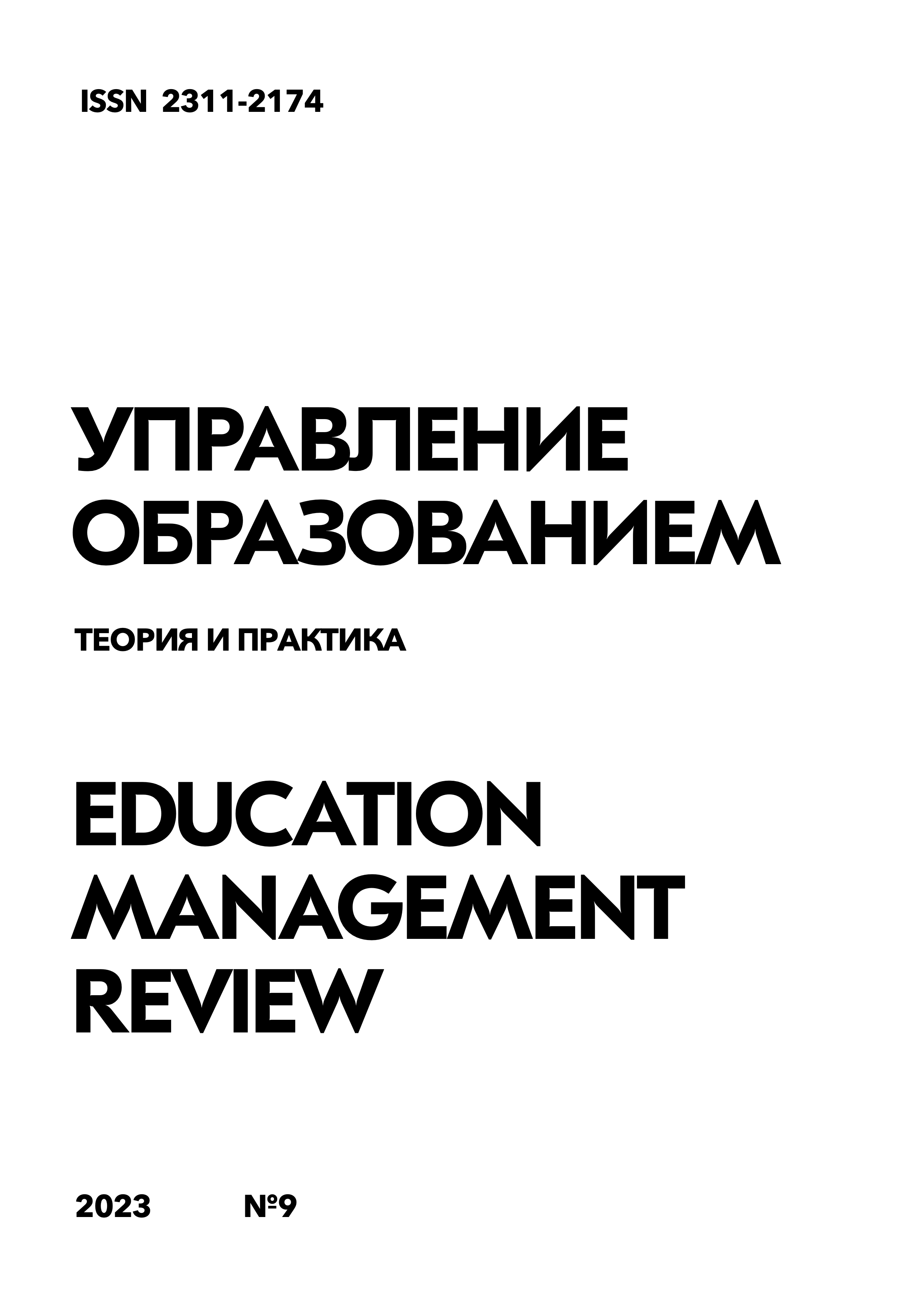Innovative models of education: comparative analysis of various approaches and their impact on the quality of the educational system
DOI:
https://doi.org/10.25726/u7976-6485-2851-uKeywords:
innovative models, educational approaches, quality of education, comparative analysis, educational systemAbstract
The educational system in Russia is in the process of active transformation. This is primarily due to the rapid technological development, which makes adjustments to the requirements for the qualifications of graduates of higher educational institutions. In this context, it becomes obvious the need to apply new approaches and methods in the educational process aimed at improving its quality and effectiveness. There are many models of education, each of which has its own characteristics and advantages. However, the choice of a specific model should be justified not only by its potential capabilities, but also by its applicability in specific conditions. In order to determine which model will be the most effective in the Russian educational space, it is necessary to conduct a comparative analysis of various approaches and assess their impact on the quality of education. The purpose of this article is to analyze three modern models of education: "learning in cooperation with industry", "flexible education" and "problem-based learning". An overview of each of these models, their features and examples of successful implementation will be conducted. Then, the impact of each of them on the quality of education in Russia will be analyzed. Special attention will be paid to evaluating the effectiveness and identifying possible limitations of the use of these models in the Russian educational system. The research is based on the analysis of current research papers, statistical data, as well as their own observations and conclusions. The results of this study will help not only to deepen the understanding of modern models of education, but also to form the basis for further research in this area.
References
Арпентьева М.Р. Проблемы безопасности в Интернет: цифровая беспризорность как причина цифровой зависимости и цифровой преступности // Вестник Прикамского социального института. 2017. № 3(78). С. 99-110.
Баймухамедов М.Ф., Еслямов С.Г. К вопросу о применении роботов в подготовке специалистов с высшим образованием // Актуальные научные исследования в современном мире. № 6- 2(62). С. 18-22. 3. Баракина Т.В. Направления робототехники в системе основного и дополнительного образования детей // Информатика в школе. 2021. № 5(168). С. 44-48.
Буренкова Н.В., Данилова Т.В., Тонких А.П. Инновационный подход к формированию модели современного учителя российской школы // Управление образованием: теория и практика. 2020. № 4(40). С. 29-36.
Дубров Д.В., Кочетков М.В., Стекольников В.Ю. Работодатель как актор студентоцентрированного образования: опыт реализации // Высшее образование в России. 2020. Т. 29. № 11. С. 141-152. DOI: 10.31992/0869-36172020-29-11-141-152
Желонкин В.В., Кодоров А.Е., Полынцев Е.С., Шабалин И.Д., Шандаров Е.С. Использование нейрокомпьютерного интерфейса и социального робота в образовании // Сборник избранных статей научной сессии ТУСУР. 2020. № 1-1. С. 306-312.
Журбенко В.А., Саакян Э.С. Использование инновационных методов обучения в медицинском вузе. Международный журнал прикладных и фундаментальных исследований. 2016. № (11-1). 164-164.
Зеер Э.Ф, Новоселов С.А, Давыдова Н.Н. Институциональное обеспечение образовательных инноваций // Образование и наука. 2011. № 9 (88). С. 3-20.
Коробцов А.С. Качество инженерного образования: лозунги и реальность // Инженерное образование. 2020. № 27. С. 27-36. EDN RYDZZE.
Кочетков М.В. Инновации в образовании. «Как отделить зёрна от плевел?» // Высшее образование в России. 2020. Т. 29. № 11. С. 153-166. DOI: 10.31992/0869-3617-2020-29-11-153-166
Кучма В.Р., Седова А.С., Степанова М.И., Рапопорт И.К., Поленова М.А., Соколова С.Б., Александрова И.Э., Чубаровский В.В. Особенности жизнедеятельности и самочувствия детей и подростков, дистанционно обучающихся во время эпидемии новой коронавирусной инфекции (COVID-19). С. 27. URL: https://школа5.уоирбит.рф/upload/files/docs/Кучма%20В.Р.%20и%20Со%20Жизнедеятельность%20и%20 самочувствие%20обучающихся%20в%20эпидемию%20COVID-19_16.07.2020_в%20редакцию.pdf
Щукин Ю.В., Мензул Е.В., Мякишева Ю.В. Инновационные подходы формирования образовательных траекторий в медицинском вузе. Медицинское образование и вузовская наука. 2017. № 9 (1). С. 21-25. 13. Arruabarrena R, Sánchez A., Blanco J.M, Va-dillo J.A, Usandizaga I. Integration of good practices of active methodologies with the reuse of student-generated content // International Journal of Educational Technology in Higher Education. 2019. Vol. 16. No. 1. Article no. 10. DOI: 10.1186/s41239-019- 0140-7
Lavi R., Tal M, Dori Y.J. Perceptions of STEM alumni and students on developing 21st century skills through methods of teaching and learning // Studies in Educational Evaluation. 2021. Vol. 70. Article no. 101002. DOI: 10.1016/j.stue-duc.2021.101002
Lemattre D. Training engineers for innovation: Pedagogical initiatives for new challenges // European Journal of Education. 2019. Vol. 54. No. 4. P. 566-576. DOI: 10.1111/ejed.12365
Morales-Avalos J.R, Heredia-Escorza Y. The academia-industry relationship: igniting innovation in engineering schools // International Journal on Interactive Design and Manufacturing. 2019. Vol. 13. No. 4. P. 1297-1312. URL: https://www.springerprofessional.de/en/the-academia-industry-relationship-igniting-innovation-in-en-gine/16778482 (дата обращения: 03.10.2022)




